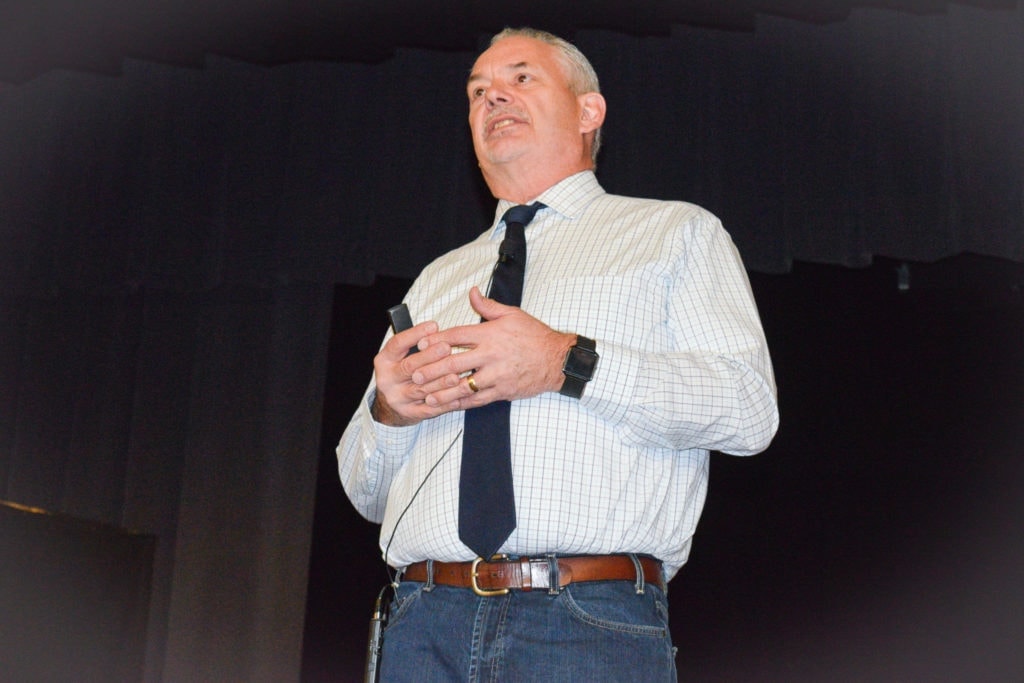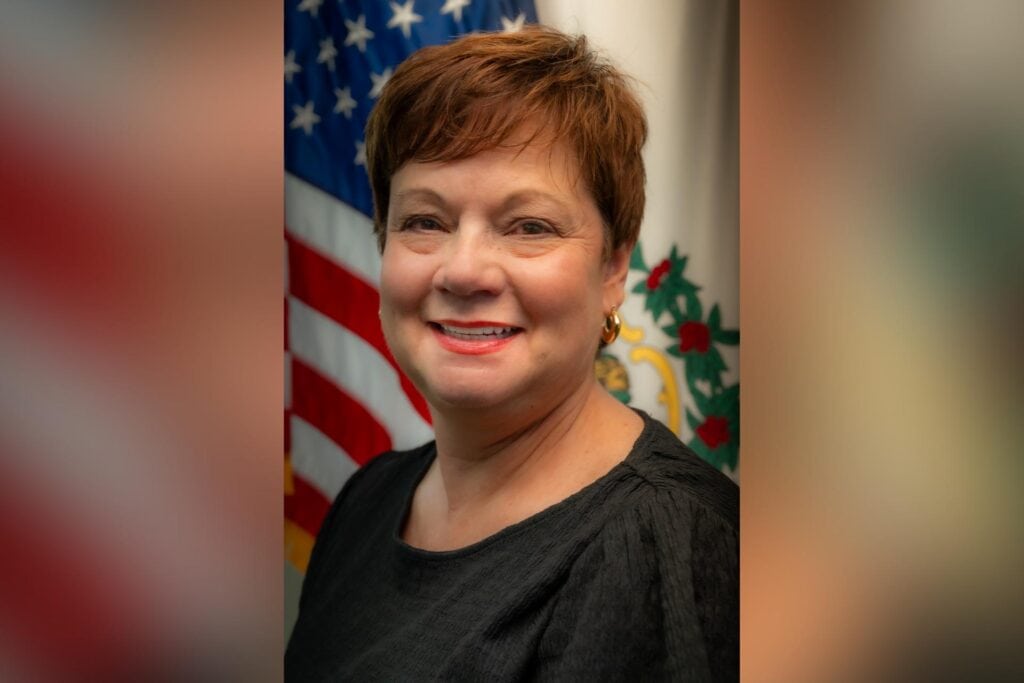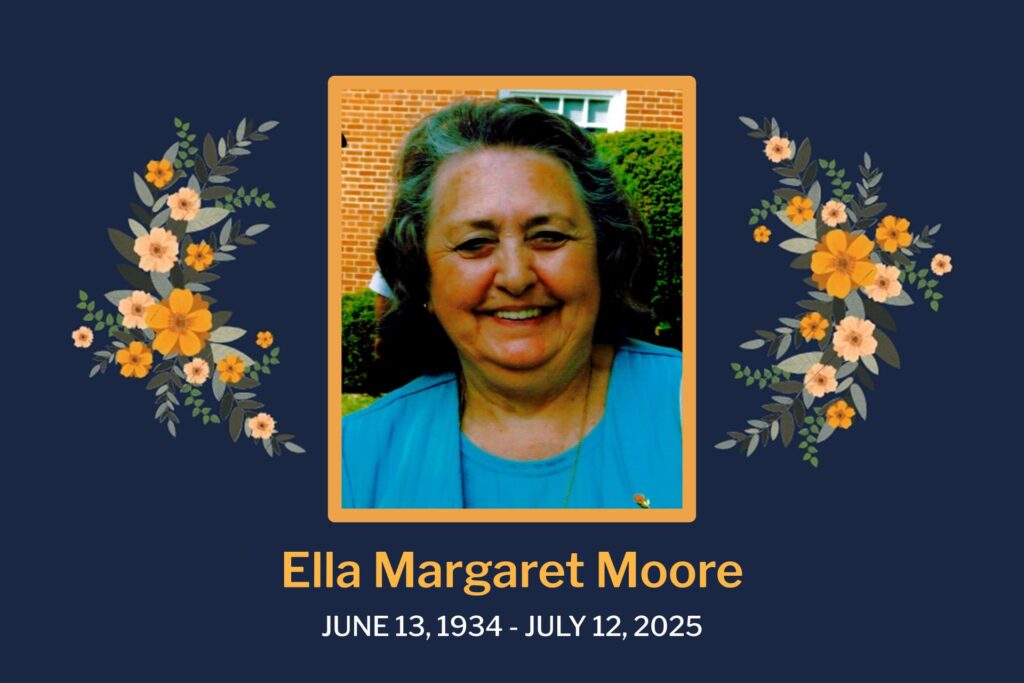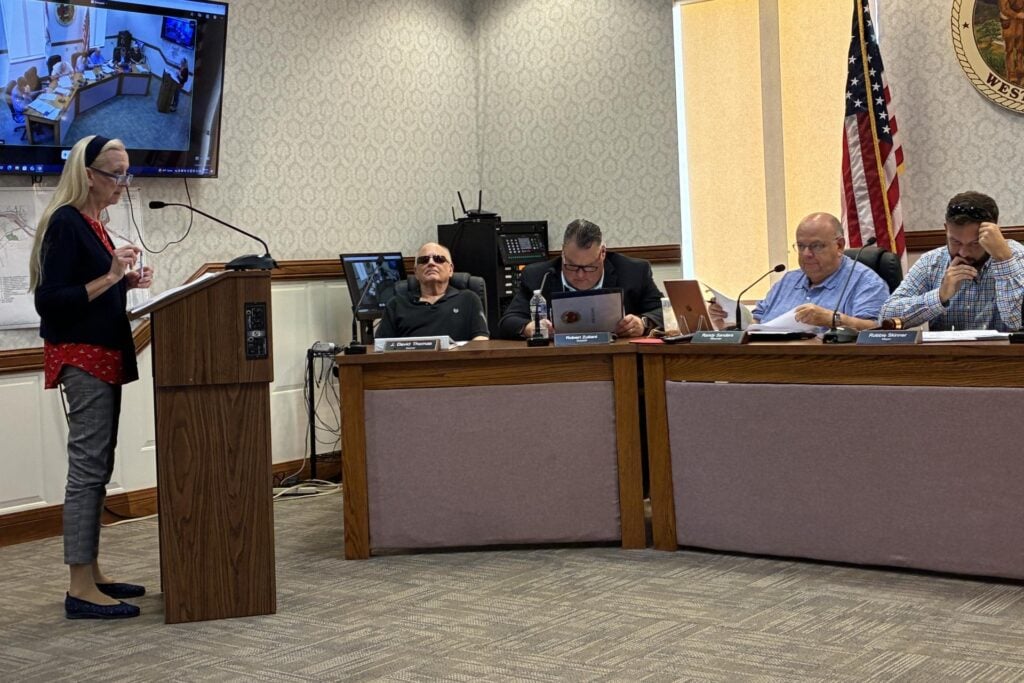TENNERTON – On Friday, it was Upshur County Schools employees’ turn to learn.
All county school teachers, support staff, Board of Education members and administrators, as well as community representatives, gathered at Buckhannon-Upshur High School to learn how to become trauma-informed, with the hope of having a greater positive impact on struggling students.
Jim Sporleder, a retired principal at Lincoln High School in Walla Walla, Washington, spoke with Upshur County School employees about how he and his staff became a “trauma-informed” school.
With Sporleder’s guidance, Lincoln High gained national attention due to the school’s dramatic drop in out-of-school suspensions, increased graduation rates and the number of students going on to post-secondary education, according to information on Sporleder’s website.
The visible, concrete changes at Lincoln caught the attention of filmmaker Jamie Redford, who spent a year filming “Paper Tigers,” a documentary that was released in 2015, telling Lincoln’s story. “Paper Tigers” received positive reviews at the Seattle International Film Festival in May of that year.
Sporleder told those gathered it takes every single person to take care of the collective student body.
“The approach you have started as a trauma-responsive approach will help to take care of kids and catch many of them before they fall,” he said Friday morning.
He said the success at Lincoln High School took everyone in the school wrapping their arms around the students.
“Our intent was to transform our school. With this information and with this mindset, the intent is to bring hope to your kids. You cannot take this approach with your kids without it transforming you,” he said. “These kids are coming from homes. They are coming in pain, and they are coming to school hurting. Their pain triggers at school. We can understand a little more and use approaches and strategies that make a difference.
Educators, support staff, administrators and others can’t just stay in the classroom or behind closed doors while utilizing a trauma-responsive approach.
“With a trauma-responsive approach … we need to be out and highly visible because we are making connections with kids and with each other,” Sporleder added. “When you look at the research, it tells us we need to change our approach, and you have the leadership team that understands that and supports you and has given you permission to go with this different mindset. You are going to accomplish things that you never thought you would be able to accomplish.”
Sporleder said all too often, students are labeled quickly when educators, administrators and others should be spending time getting to know students to see what’s behind their behavior.
Sporleder said being trauma-responsive doesn’t mean adhering to some kind of checklist.
“Trauma-responsive is who you are as a person,” he said. “It goes through the heart to the head. Everything aligns with a trauma-responsive approach because my intent is to have as many positive interactions with as many kids as possible per day, and with my peers, coworkers and community partners.”
He said he knows if he has a positive interaction with people he comes in contact with each day, “who knows? It just could be the ray of sunshine they need.”
Dr. Sara Lewis Stankus, superintendent of Upshur County Schools, said the idea to bring Sporleder to Upshur County began in July when director of student services Jodie Akers and Melissa Stewart talked about his work with trauma, and the impact it has on learning.
She said Upshur County Schools hope to learn and become trauma-responsive to better serve all students in the county.
“They began to devise a plan on how we could bring this speaker to our employees and inspire you in some way and acknowledge the work you are doing can be very difficult,” Stankus said. “I can’t thank them enough for their leadership. Our Board of Education supports us and has given us permission to move forward with this.
“I grew up in Queens, and I was poor, but I didn’t know it,” Stankus said. “We had a big family, lived on a farm and had dinner on the table every night. There were two parents in my home, and we ate supper together every evening. We went to church on Sunday, and we were expected to help out on the farm. This childhood experience may be something like yours – but let me tell you – it’s not the experience of most of our kids today.”
Stankus said if she were to walk into a teacher’s classrooms today and survey the students, she expected she would find more than 50 percent of the students would be living in a single-parent household or even with their grandparents.
She said many of the students – probably about 60 percent of them – would have someone in their family fighting an addiction. She added that maybe a parent or relative was even incarcerated because of that addiction.
“Quite often, this addiction impacts the food availability in that home,” Stankus said. “Right now, more than 500 of our students are taking a backpack of food home every weekend just so they will have enough food. You are doing that work – you are filling those backpacks, just so they will have enough food for the weekend. We are feeding them breakfast, lunch and a snack, and then we are giving them a backpack on Fridays.”
Stankus said her words were not intended to make others sad.
She said she chairs the expulsion hearings and meets with students who are considering dropping out of school. Those are the most difficult of meetings, she added, saying even the board members often leave those meetings in tears.
“The alternative school program at our middle school is full,” Stankus said. “The alternative for the high school is full. Our transitional school that has 40 students that we are educating differently is almost full. Each and every one of these students have a story. They have a situation. They have experienced trauma…. They are tough because they have to be, to survive in their situation. Ninety percent of the time, the story behind their anger will not make you mad – it will break your heart,” Stankus said. “You are on the front lines of this battle: you drive the bus, you feed them breakfast and lunch and a snack. You teach them and arrange for them to go places during the week. You listen, you encourage and you change lives. You make the difference. Quite often, you are their only hope.
Stankus told those gathered, “We have gone far as a county together, and we will continue our journey together. I hope this day and the information you hear today will in some way encourage you to continue doing the good work you are already doing, and I hope it will help you see yourselves as I see you: the Upshur County Superstars who touch the future, one child at a time.”
Community businesses that helped sponsor Friday’s “Catching Kids Before They Fall” training include Aaron’s, Central Supply, McDonald’s, Project Aware, Sen. Bill Hamilton, Sheetz, Speedway, Subway, Wendling’s, Wendy’s and Weyerhaeuser.














